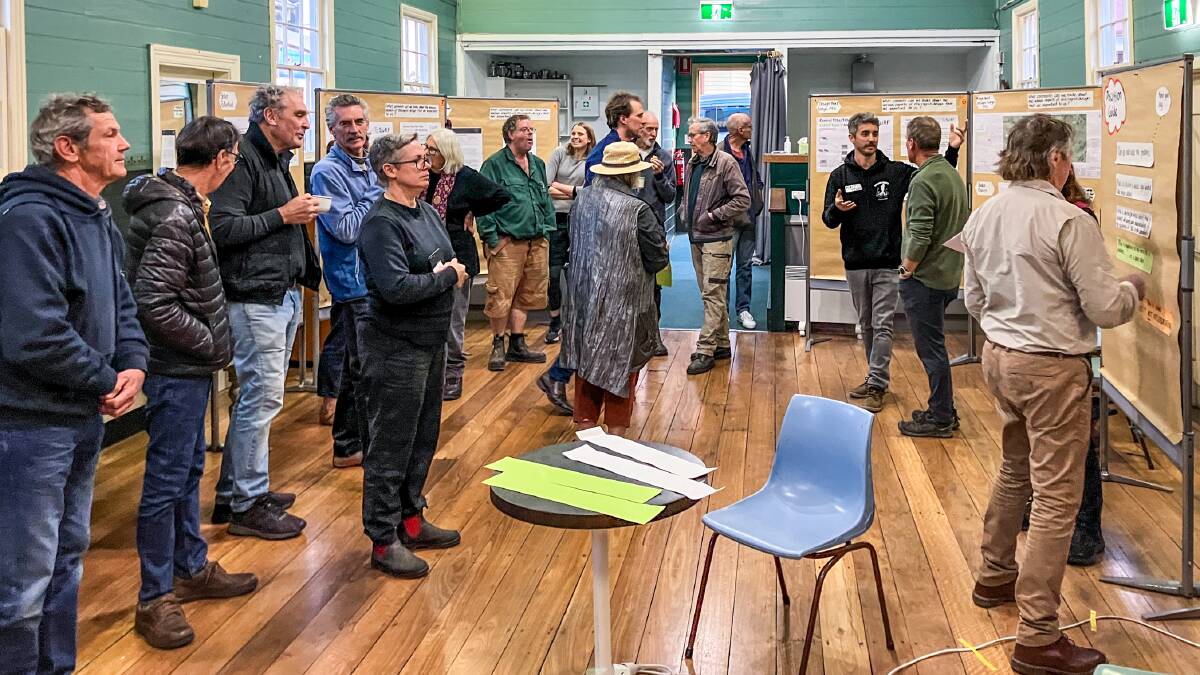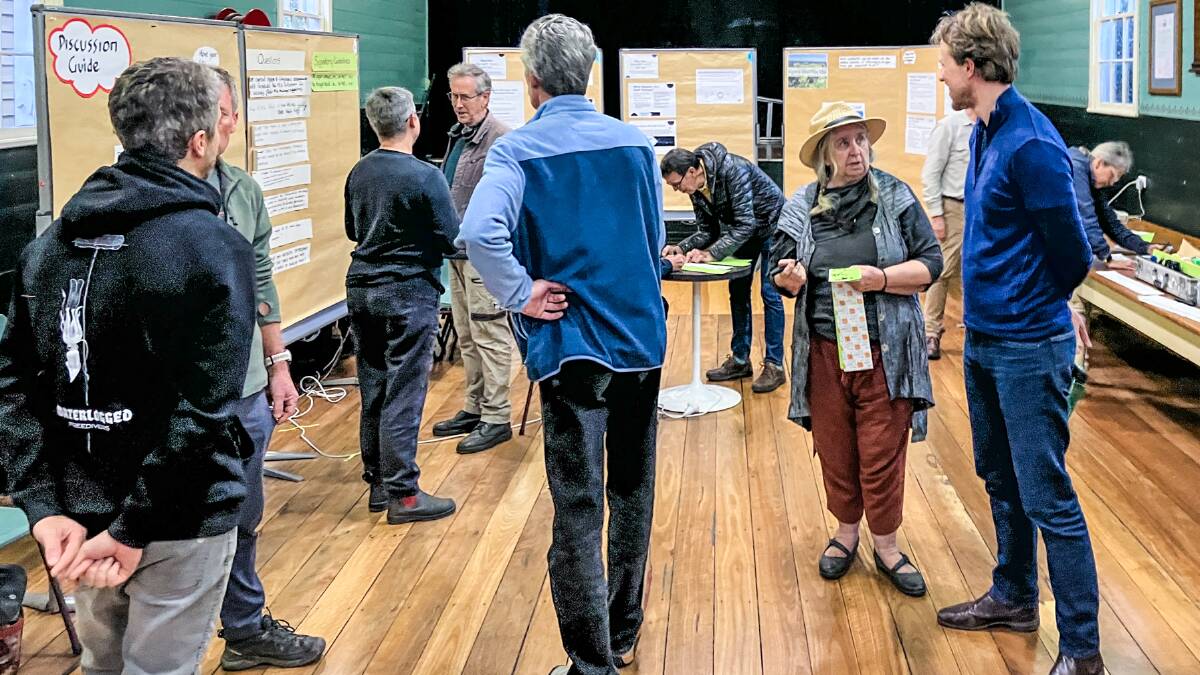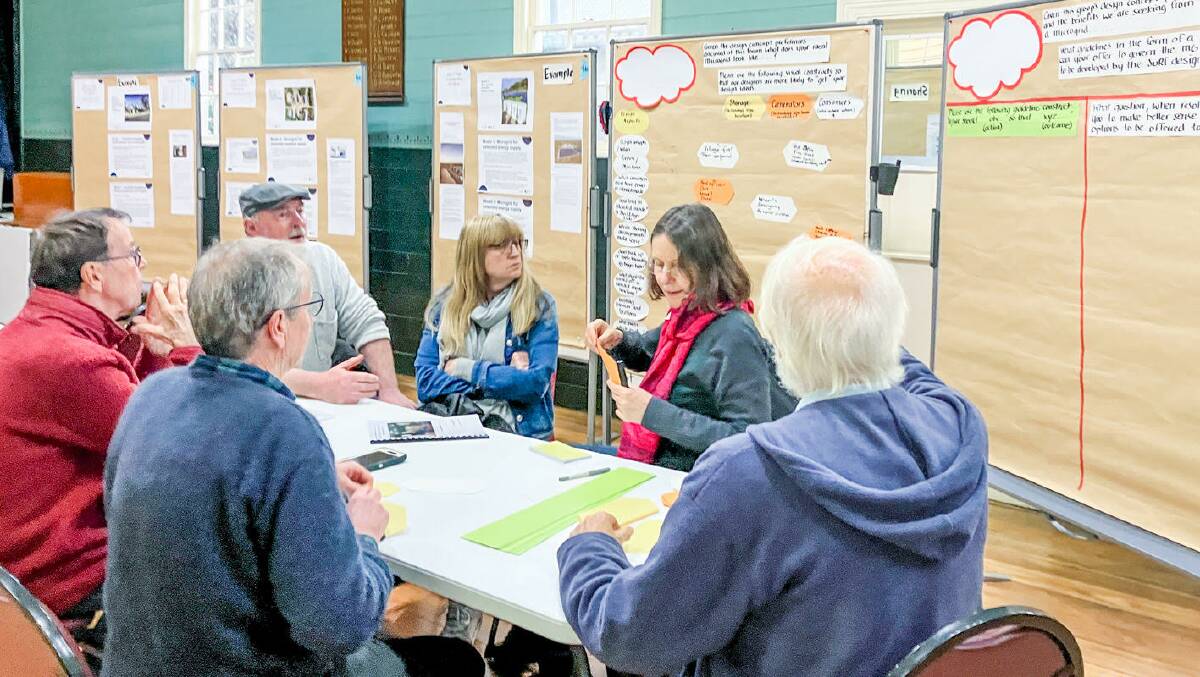Bay Post Updated June 20 2023 – 12:33pm, first published 12:29pm
Facebook Twitter Whatsapp Email

There was considerable interest in the second round of SuRF’s community forums regarding microgrids for Tilba Tilba and Central Tilba on Saturday, June 17. Picture supplied.
Over the weekend there was further progress on the feasibility study regarding solar-powered microgrids in the Eurobodalla.
A second round of community forums was held in Tilba and Mystery Bay on June 17 and Bodalla on June 18 following similar forums in May in Congo, Broulee and South Durras.
The SuRF project looking at microgrids in six small Eurobodalla communities was conceived in late 2021 by local community energy group SHASA.
SHASA’s SuRF project manager Phil Shorten said SHASA initiated the project in response to the continuing transition to cleaner energy and the extensive power outages during the Black Summer bushfires.
SHASA has partnered with ANU, Essential Energy and consulting firm Zepben to undertake the SuRF project which is essentially a three-stream feasibility study examining technical, financial and social aspects.

At the SuRF community forums in Tilba, Mystery Bay and Bodalla over the weekend of June 17-18, high-level overviews of each community’s microgrid design were presented by Bjorn Sturmberg from ANU’s battery and solar and grid integration program. Picture supplied.
Combination of drivers
Mr Shorten said government supports microgrid feasibility studies to help understand the extent to which they can help reduce greenhouse gas emissions.
Additionally, the amount of roof top solar creeping into the main electricity grid is problematical for a system designed to deliver electricity centrally rather than receive it in a decentralised way.
“The technology of renewables, the age of our main electricity infrastructure and the urgency of climate change are now causing us to explore options like microgrids,” Mr Shorten said.
Microgrids are new for most of Australia.
They raise issues like who uses the locally-generated power and how much of it, who pays for the infrastructure, including solar panels and battery, and who gets paid and how much for generating the electricity.
So governance and engineering controls must be incorporated into microgrid designs.
Mr Shorten said there may be opportunities for the community to benefit from trading electricity with the main grid.

The first round of SuRF community forums was held in spring 2022. Picture supplied.
Latest developments, next steps
At the weekend forums, Bjorn Sturmberg from ANU’s battery, solar and grid integration program provided a high-level overview of the microgrid design for each community.
Some of the larger designs incorporate a solar farm with the caveat of land being available.
SHASA president Kathryn Maxwell spoke about relevant government grants and related projects including Maloneys Beach battery project and solar farms underway in the Shoalhaven.
Microgrids are one of many changes we can expect in our national electricity system as we transition to cleaner energy and want to be better prepared for emergencies like storms, floods and fires.
– Phil Shorten, SHASA’s SuRF project manager.
The SuRF partners expect to develop business cases and implementation plans for some microgrid options discussed by early next year.
That will help communities to seek funding to advance the microgrids.
“Some wind farms have been funded by communities, private investors and government so it might be a similar answer for microgrids,” Mr Shorten said.
“We don’t know.
“We are very much at the forefront of change.”